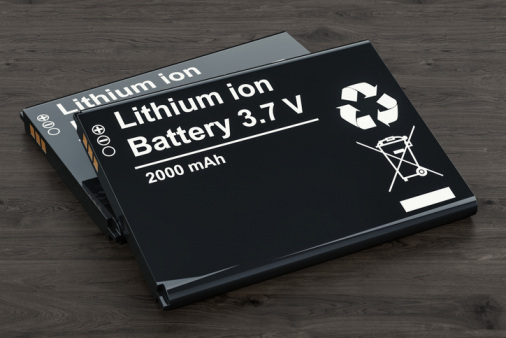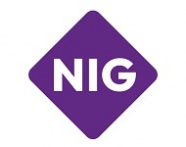Managing the risk of lithium-ion batteries

Authored by NIG
Since their introduction in the early 90s, demand for rechargeable lithium-ion batteries has grown exponentially. From laptops, mobile phones, tablets, and smartwatches to e-scooters and electric cars, they’re found in many of the devices we use every day.
Smaller, lighter and capable of holding significantly greater power than traditional batteries, they are only expected to become more popular as the world becomes ever-more technologically advanced and manufacturers focus on sustainability. The global lithium-ion battery market was valued at $46.2 billion in 2022 and is expected to grow to $189.4 billion over the next decade.
But while lithium-ion batteries bring numerous benefits, they also come with risks, which it’s vital wholesalers and retailers storing and selling products containing them are aware of.
Fire and explosion risk
During normal use, lithium-ion batteries are perfectly safe. However, if they are damaged, a chemical reaction inside the battery can cause the computer chip used to control the charge level to short circuit. This causes the battery to overheat very quickly and can lead to fire. Overcharging, or using the batteries in the wrong piece of equipment, can also cause short-circuiting. Lithium-ion batteries are particularly dangerous as they release a toxic flammable vapour which fuels the fire further and makes it difficult to control. Even if a fire appears to have been extinguished, it could reignite hours or even days later.
In commercial environments, such as warehouses, or waste recycling centres, the sheer volume of lithium-ion batteries near one another means any fires could easily get out of control.
Liability risk
Businesses selling products using lithium-ion batteries could find themselves at risk of product liability claims if products are found to be defective and cause any harm to consumers.
There are also liability risks for businesses transporting batteries or products containing them. Ultimately, it’s the sender’s responsibility to ensure they are packed correctly, labelled appropriately, and transported via the correct means.
How to manage risk around lithium-ion batteries
There are currently no specific UK guidelines for fire protection of lithium-ion battery storage, however, the Fire Protection Association (FPA) suggests the following:
- Limit storage area to no greater than 20m2
- Limit storage height to 1.8m
- Separate multiple storage areas by aisles a minimum of 3m wide
There are also other measures you can take to help reduce risk, including:
- Following all manufacturer instructions for usage correctly
- Never exposing batteries to high temperatures or leaving them in direct sunlight
- Always use a reputable named brand of charger, designed specifically for the battery you have
- Looking out for any signs of physical damage
- Educating your teams around the potential risks and ensuring there is a clear plan if a fire does break out
- Considering how to safely dispose of batteries, for example away from other waste forms and in a lidded metal container
It’s also essential that any businesses dealing with lithium-ion batteries have a fire risk assessment that covers handling, storage, use, and charging.
NIG Risk Assist offers an easy-to-use and comprehensive range of online tools to help manage and reduce risks within businesses, including risk assessment templates and unlimited access to our ‘ask the expert’ service. Get in touch with your usual NIG contact today to find out more, or discover more about Risk Assist on our website.
About NIG
We’ve been experts in commercial insurance for 125 years.
The National Insurance and Guarantee Corporation (NIG) is a broker only insurer; we believe in getting to know both the brokers we work with and their clients’ businesses, building trusted partnerships that last for the long-term. Our highly experienced underwriting team are focused on working with brokers to identify and understand the risks faced by UK enterprises. Together, with our risk control experts and risk management tools we develop solutions to help UK enterprises reduce and mitigate key exposures. We offer a wide range of products with flexibility to create tailored insurance cover and when clients need us, claims are dealt with quickly and fairly through a proactive claims approach.
Our trading model has been designed to reflect the differing requirements of how brokers like to trade, with regional offices, National Trading Centre, National Schemes Centre, eTrade Centre of Excellence and dedicated experts for specialist sectors.
We’re investing in new technology to make us even easier to trade with. We’re launching an online risk management resource supported by our in-house Risk Control Team and introduced online claims submissions to speed up the claims process, minimising disruption to clients’ businesses. We are also the only insurer two years running with a five-star rating for both TheHub and Software Houses, in the Insurance Times 2019 and 2020 eTrade survey.
We are dedicated to making UK enterprises more resilient.
NIG is a wholly owned subsidiary of Direct Line Insurance Group plc, providing stability and financial strength. Our policies are underwritten by U K Insurance Limited.

